How Education Lets This Farm Labourer’s Son Help Thousands While Earning Lakhs
He believes that farming should be treated as a business.
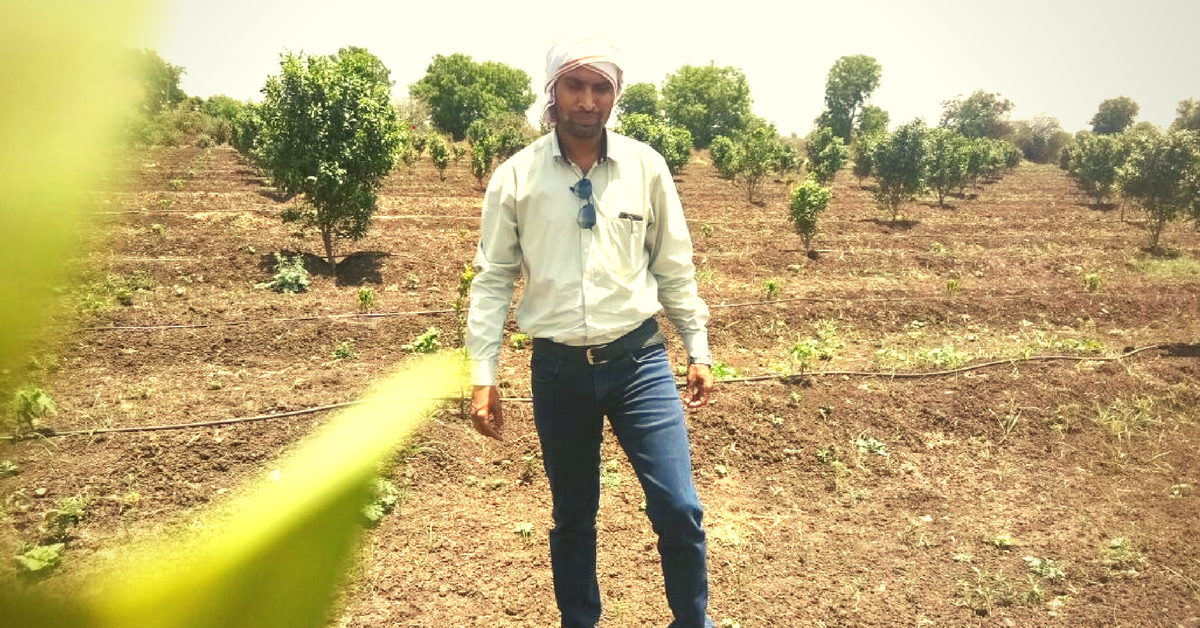
In the Jambazar village of Pusad district, Maharashtra, Khalil Khan got his share of 2.5-acre land after it was divided among his brothers. There was a road crossing in-between this farmland which was also infertile and full of stones. Khan lacked the resources and the knowledge to revive the land. So he started working as a farm labourer for Deshmukh, one of the wealthiest farmers of the village.
Khan’s three daughters and wife would accompany him to the farm while Yunus, his son would go to the government primary school in the village. The family could afford to educate only one of the four kids, and hence they decided to send their son to the school.
Yunus would also accompany the family to the farm on weekends and do small tasks like reaping the groundnuts, cleaning the weeds and collecting the farm waste.
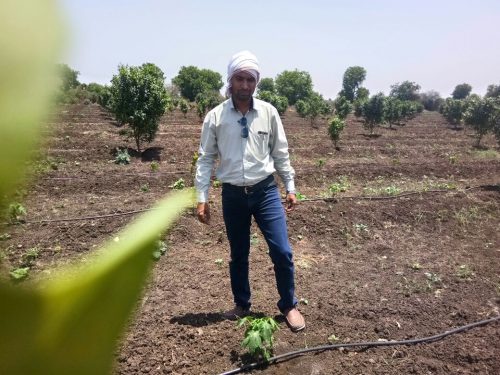
He would enjoy the farm activities more than his studies. But then one of his teachers motivated him to read from his vast collection of books.
“I stood first in class 4, and my Principal gifted me Rs. 5. Those days Rs 5 was a lot. We would get a litre of kerosene for Rs 2. That was when I realised that education could get me money,” says Yunus.
Yunus started studying hard. He would also read the abhangs, the books by Tukaram and Meerabai from the principal’s collection. He would use these poems in the speech and debate competitions in school and earn good prize money.
To arrange the expenses of his books, Yunus would also work in the brick factory at the age of seven. By the time he finished school, Yunus had started working at a telephone booth where he had met the proprietor of a nursery. After learning of Yunus’ knowledge of plants, he offered him a job as a salesperson. This gave the young man the opportunity to meet more farmers, through which he realised that it was crucial to educate the farmers.
“I realised that most of the progressive farmers were educated whereas the farmers who were in distress were the ones who did not even know to read or write, just like my father. I also came to know that there are techniques to revive an infertile land like ours too,” he says.
After this experience, Yunus decided to pursue his education in agriculture. He continued working with the nursery and took a degree in B.Sc. Agriculture. He wanted to study further, but his father needed his support for his sister’s wedding.
“My father had already had sold 1.5 acres of his land for my elder sister’s wedding. I wanted to help him during the weddings of my younger sisters. So I set my dream aside and took up a job as an executive in the same nursery,” Yunus said.
While working with farmers in a few more districts, Yunus got to know about the ill effects of chemicals and how the chemical companies were fooling farmers into using them.
Thus, he decided to quit his job and start his consultancy to help farmers make the shift to organic farming.
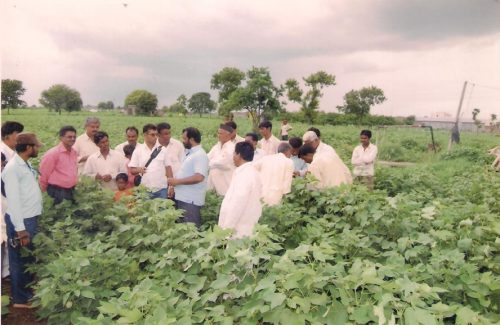
“I would charge them Rs.50 for my suggestions so that they valued me. That was also enough for my petrol expenses, and the farmers would provide me with grains and vegetables for my living. I was happy that I was able to convert farmers to adopt organic methods slowly and steadily,” he says.
In few years, Yunus was able to convert almost 100 farmers to shift to organic farming. He became well-known among farmers and was approached by people who owned more than 50 acres of land and wanted someone to farm on them.
In 2010, Yunus registered his consultancy and started taking farming contracts for big farms. The first thing he did was to conserve water in these farms, to help other farmers.
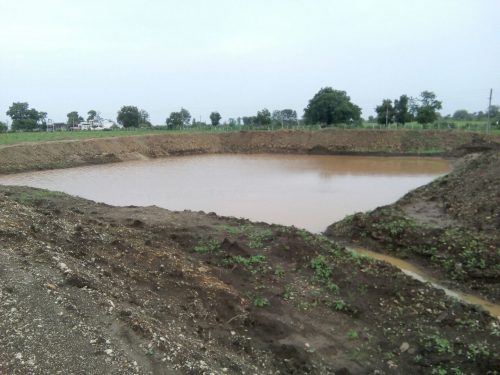
“Rainwater conservation is the only way to save our land. Just one pond can conserve almost 10 lakh litres of water and irrigate 500 acres of land in its vicinity,” Yunus informs.
He believes that farming should be treated as a business. He takes guest lectures at the Agri clinic and Agri-business Centre started by NABARD at Akola.
In 2015, Yunus joined an NGO, Shivaprabha Charitable Trust in Pune to further help farmers. He identified 50 widows who were in need of immediate help and informed the NGO. Funds were raised through The Better India campaign and farmer families received help in setting up sustainable businesses like sewing machines, goat farming and tiffin services.
Yunus also identifies if any of the farmers need any medical attention. Recently he helped the farmers with safety kits through them.
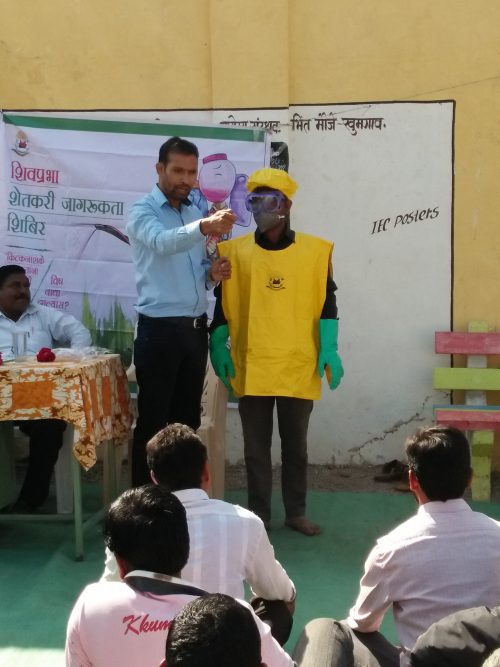
Today, Yunus has transformed ten farms of over 50 acres each. He has been helpful to more than 1,600 farmers, and nearly 350 candidates have been certified with his training of agri-business.
He now earns Rs. 3.5 to 4 lakhs every year through his consultancy. He uses his remaining 1-acre land for experimentation purposes and wishes his sons to become future farmers. In fact, his elder son, 12-year-old Arshad runs a YouTube channel about farming.
“Farming should be looked upon as an industry. Just like we keep track of the money flow in other businesses, we should also keep track of the investments, input-output, balance-sheet and profits in farming. A farmer can gain profits only if the investment is less than the output, which is possible only in organic farming. We must also remember that resources are limited, so conservation of soil and water will be beneficial. In addition to this, agri-businesses like goat farming, dairy, sericulture or vermiculture are a must. Only when all these factors will be considered, then farming will become a profitable business,” he concludes.
You can contact Yunus Khan on 9921966778
(Edited by Shruti Singhal)
Like this story? Or have something to share?
Write to us: [email protected]
Connect with us on Facebook and Twitter.
NEW: Click here to get positive news on WhatsApp!
If you found our stories insightful, informative, or even just enjoyable, we invite you to consider making a voluntary payment to support the work we do at The Better India. Your contribution helps us continue producing quality content that educates, inspires, and drives positive change.
Choose one of the payment options below for your contribution-
By paying for the stories you value, you directly contribute to sustaining our efforts focused on making a difference in the world. Together, let’s ensure that impactful stories continue to be told and shared, enriching lives and communities alike.
Thank you for your support. Here are some frequently asked questions you might find helpful to know why you are contributing?


This story made me
-
97
-
121
-
89
-
167











